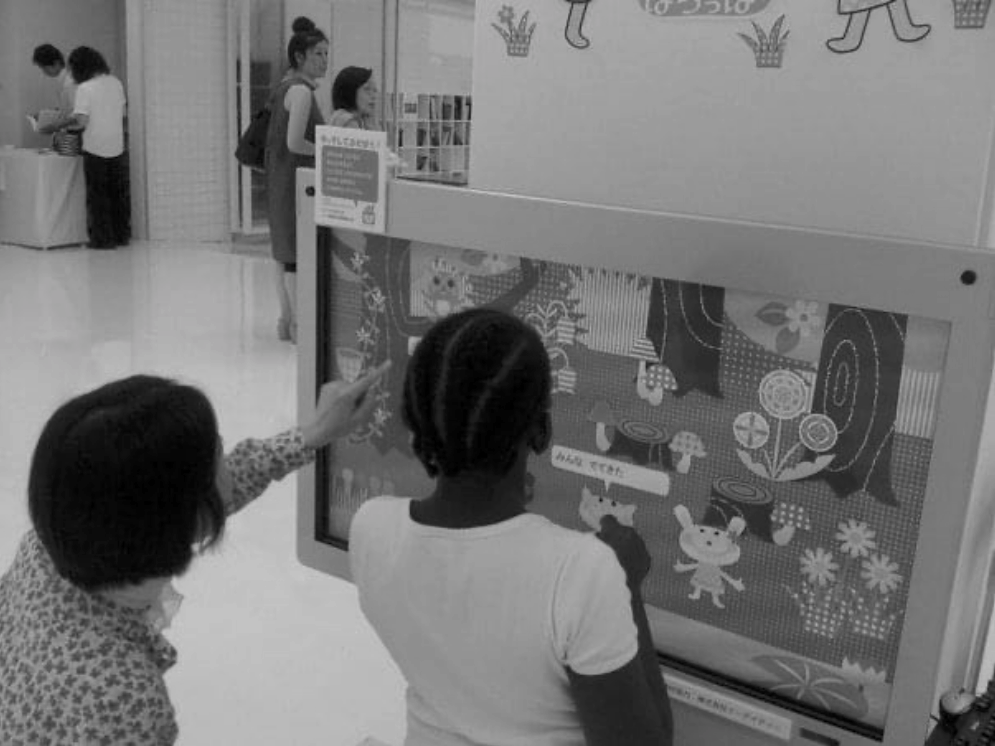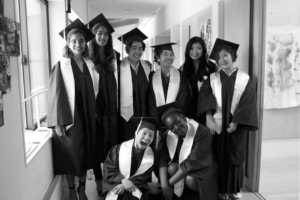
“Children are guests asking for directions.” Maria Montessori
As a parent, your role in your child’s academic journey is invaluable. From providing encouragement and guidance to ensuring they have the resources they need to thrive, your involvement can significantly impact their success. At Ahanda Global Education, we understand the importance of parental support in a student’s educational journey. That’s why we’ve put together this comprehensive guide to help parents stay connected and actively involved in their child’s academic endeavors.
STEP-BY-STEP PLAN
Open Lines of Communication:
Effective communication between parents and children is fundamental to fostering a supportive and nurturing academic environment. By maintaining open lines of communication, parents can gain valuable insight into their child’s academic experiences, challenges, and aspirations. This step encourages a strong bond of trust and understanding, laying the foundation for constructive dialogue and collaborative problem-solving.
- Foster open and honest communication with your child about their academic experiences, challenges, and goals. Create a supportive environment where they feel comfortable discussing their concerns and seeking guidance.
- Schedule regular check-ins to discuss their progress, upcoming assignments, and any issues they may be facing. Use these conversations as opportunities to offer encouragement and assistance where needed.
Utilize Communication Tools:
In today’s digital age, communication tools offer parents unprecedented access to their child’s academic progress and school activities. Embracing these tools allows parents to stay informed and engaged in real-time, facilitating proactive involvement in their child’s education. By leveraging technology, parents can effectively monitor their child’s academic journey and provide timely support when needed.
- Take advantage of technology to stay connected with your child’s school and teachers. Many schools offer online portals or apps where parents can access grades, assignments, and communication from teachers.
- Establish communication channels with your child’s teachers to stay informed about their performance and any areas where they may need additional support. Don’t hesitate to reach out if you have questions or concerns.
Set Realistic Expectations:
Setting realistic expectations is essential for nurturing a healthy and balanced approach to academic success. Parents play a crucial role in guiding their child’s goal-setting process, encouraging ambition while promoting self-awareness and self-compassion. This step empowers children to strive for excellence while fostering resilience and a positive attitude towards learning.
- Encourage your child to strive for academic excellence while also emphasizing the importance of balance and self-care. Help them set realistic goals based on their abilities and interests, and support them in achieving those goals at their own pace.
- Recognize and celebrate their achievements, no matter how small, while also providing guidance and encouragement when they face setbacks. Encourage a growth mindset that values effort and perseverance.
Provide Academic Support:
Offering academic support is an integral aspect of parental involvement in education. Whether assisting with homework or enrolling in academic coaching programs, parents can provide valuable resources and guidance to help their child succeed academically. This step emphasizes the importance of personalized support and proactive intervention in addressing learning challenges and maximizing potential.
- Offer assistance with homework and assignments when needed, but encourage independence and problem-solving skills. Help your child develop effective study habits and time management strategies to support their academic success.
- Consider enrolling your child in academic coaching programs, like those offered by Ahanda Global Education, to provide personalized support and guidance tailored to their unique needs and goals.
By following this step-by-step parental guide, parents can play a proactive role in supporting their child’s academic journey and fostering a conducive learning environment. Through open communication, utilization of communication tools, setting realistic expectations, and providing academic support, parents can empower their children to thrive academically and beyond.
The benefits of implementing these strategies are manifold. Parents can expect to see improved academic performance, enhanced self-confidence, and a greater sense of responsibility and accountability in their children. Moreover, fostering a positive and supportive relationship with their child can strengthen family bonds and promote mutual respect and understanding.
As parents actively engage in their child’s academic journey, they become instrumental in shaping their child’s future success and well-being. By providing the necessary guidance, support, and encouragement, parents can help their children navigate the complexities of education with confidence and resilience, setting them on a path towards lifelong learning and achievement.
At Ahanda Global Education, we’re here to support both parents and students on the path to academic excellence. Contact us today to learn more about our academic coaching services and how we can help your child reach their full potential.
To learn more:
- Worried about how to support your child’s education? Here are four useful steps you can take
- Role of Parents in Supporting Their Child’s Education | LinkedIn
- Bridging the Gap: The Role of Parents in Nigeria’s Education System
- Review education policies – Education GPS – OECD: Parental involvement
- Tips on parental involvement in preparing kids for school – Hindustan Times
- Intertrend | Patience School – Lessons From the Tiger Parenting Resistant
- How to help your child do well at school: ‘Helicopter parents’ and ‘tiger mothers’ should back off, say researchers | The Independent | The Independent
- Influence of Family on Education in Nigeria, Role of Family on Education in Nigeria
- Study: ‘Tiger Parenting’ Tough on Kids
- School tells parents to support learners



